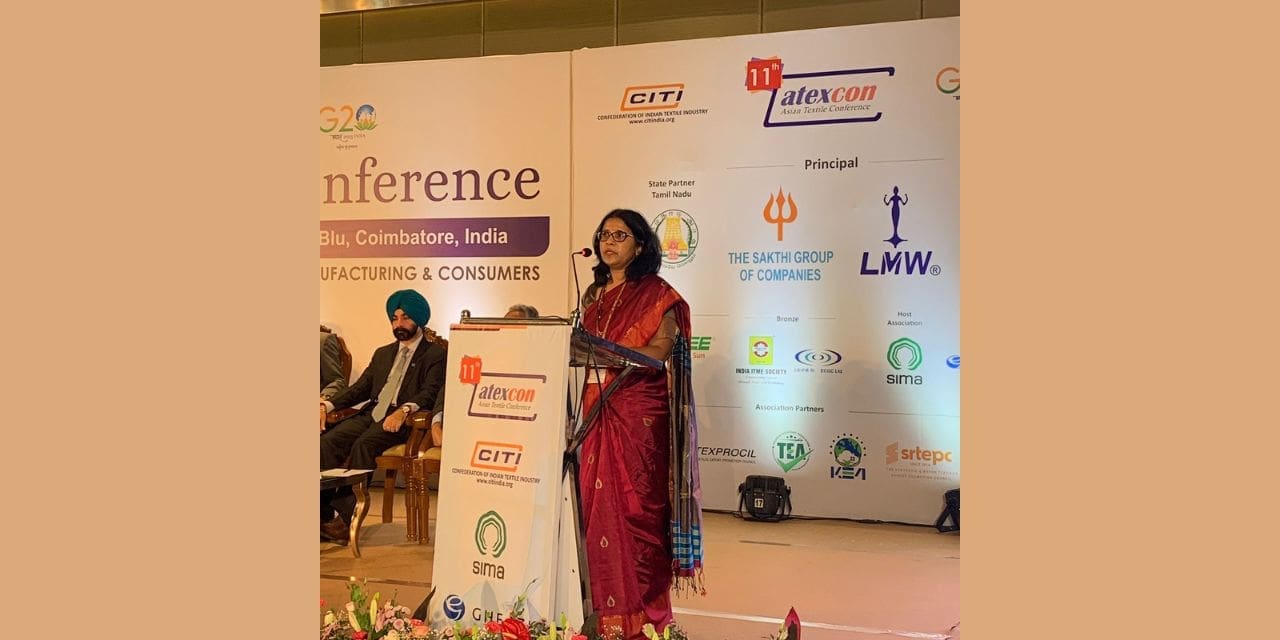The Theme of 11th ATEXCON is “2025 & Beyond Asia’s Global Hub for Textile Manufacturing & Consumers”. Over 400 delegates from the global textile & apparel value chain are participating in the 11th ATEXCON.
ATEXCON brings together the leading players of Asian textile industry, global input suppliers, and service providers to deliberate on key areas of business, including regional as well as global issues concerning this sector. It is CITI’S flagship event having participation from major associations and senior officials from the Ministry of Textile, Organising Committee, Speakers, Moderators, Co-Partners from ITMF, CMAI, NITRA, BTRA, SITRA, ATIRA, UIBC, SRI LANKA APPAREL, PDEXCIL, TEXPROCIL, FIEO and IICCI, Knowledge Partner Gherzi, Host Association SIMA, MEDIA participation.
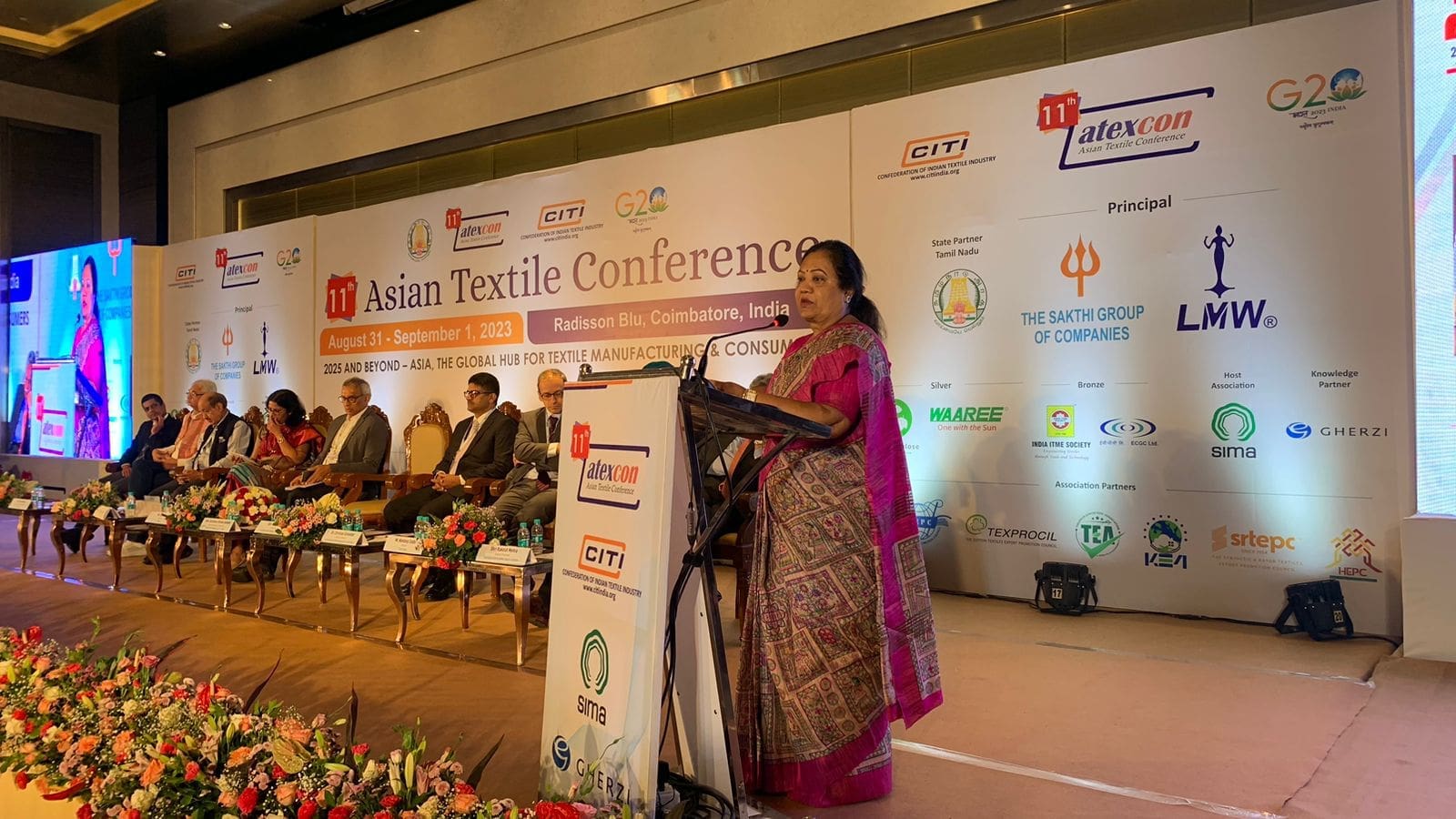
Smt. Darshana Vikram Jardosh, Minister of State for Textiles, Government of India, was felicitated as a guest of honour at ATEXCON. During the inauguration of ATEXCON, she opined that the Indian textile industry is primarily concentrating on the supply chain, which is made up of the 5Fs: farm to fiber, fiber to factory, factory to fashion, and fashion to foreign. The textile industry has improved as a result of investments made in a number of departments, particularly the Research and Development division, which has enhanced the general performance of the fabrics used in the textile sector. The top 3 apparel exporters in 2023 are from Asia, demonstrating the region’s significant contribution to the global textile market. The development of indigenous manufacturers has been greatly aided by the “Make in India” push. To support the welfare of domestic manufacturers, the Indian government has implemented the PLI and PM Mitra schemes. She said we all have to come together to make an effective textile ecosystem and bring glory to the country.
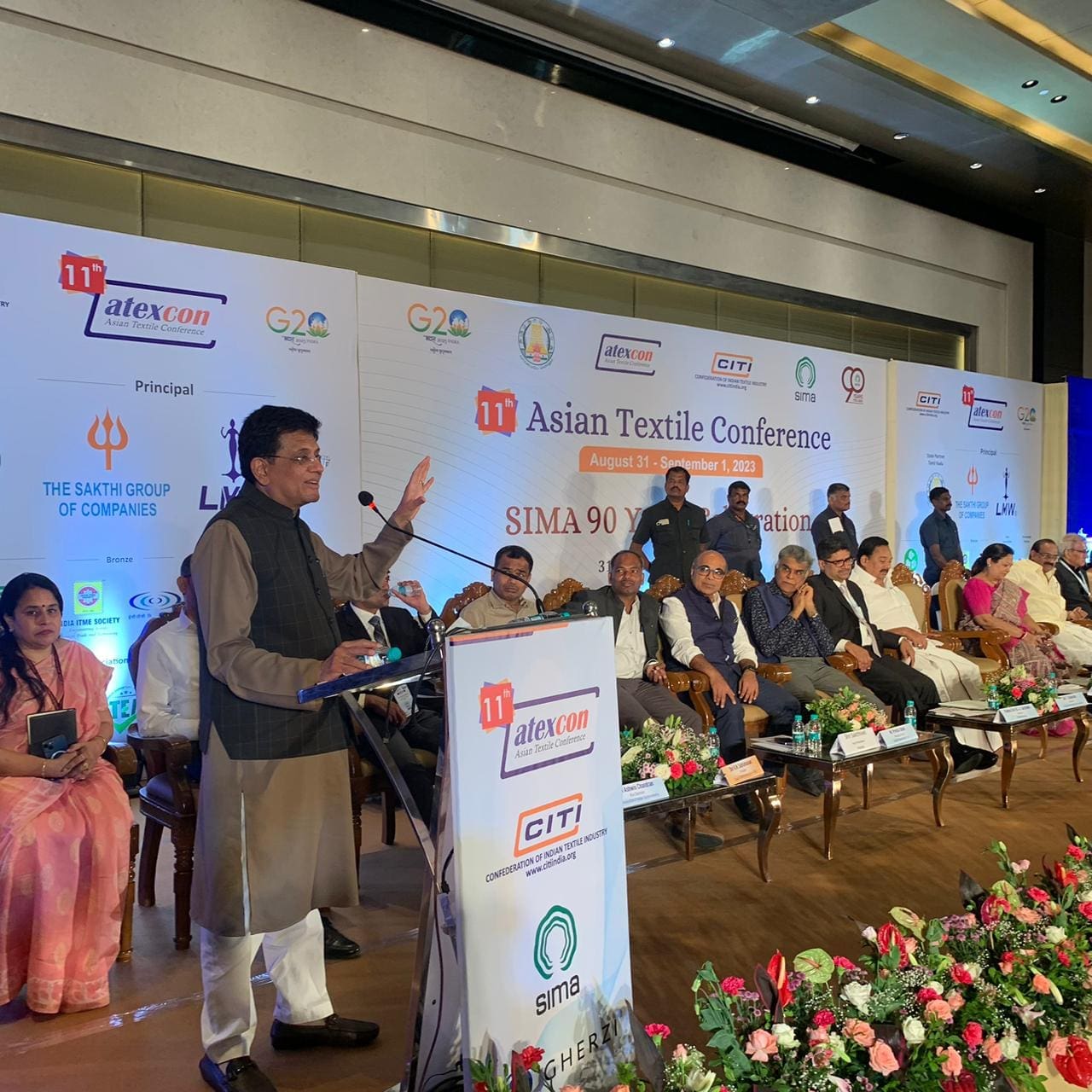
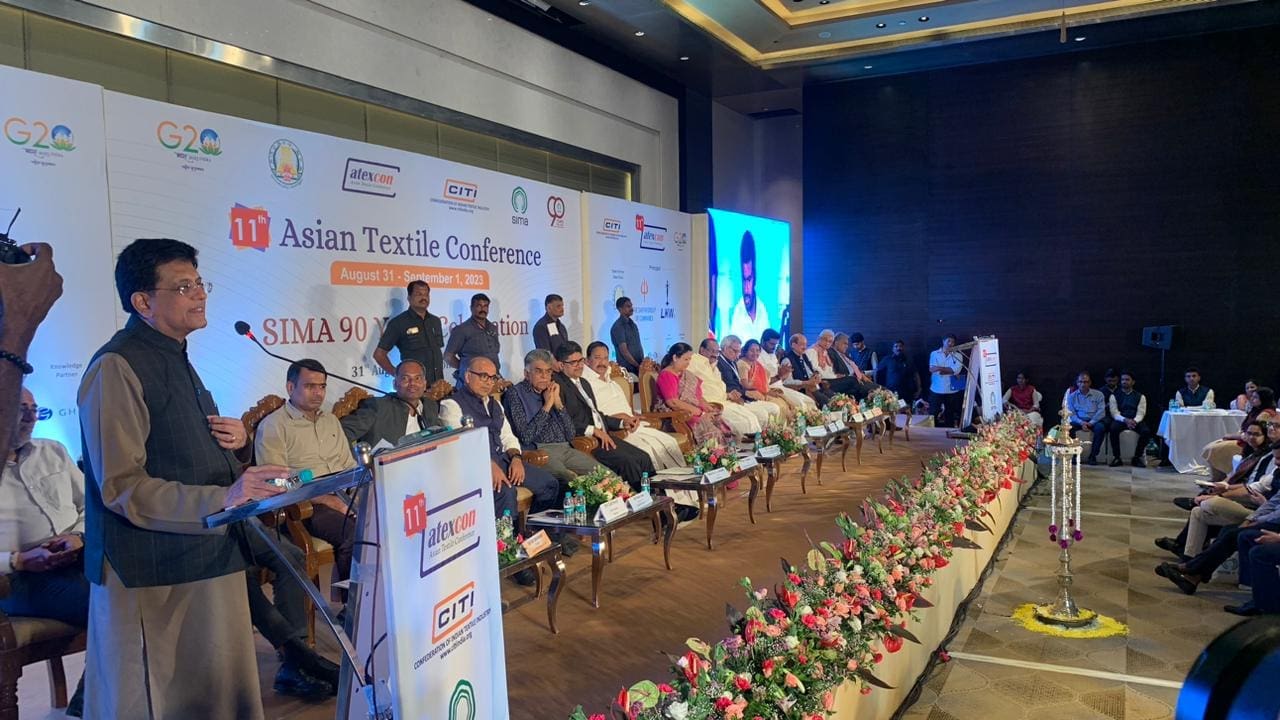
T Rajkumar, Chairman of the Confederation of Indian Textile Industry (CITI), expressed “Role of India in the Asian Textile industry and also the global textile industry as India is one of the few countries of the world which have the presence of the entire textile value chain i.e., from the production of raw materials to the delivery of finished products, with substantial value-addition at each stage of processing, unlike its peer competitors which are dependent on other countries for their raw material supply”
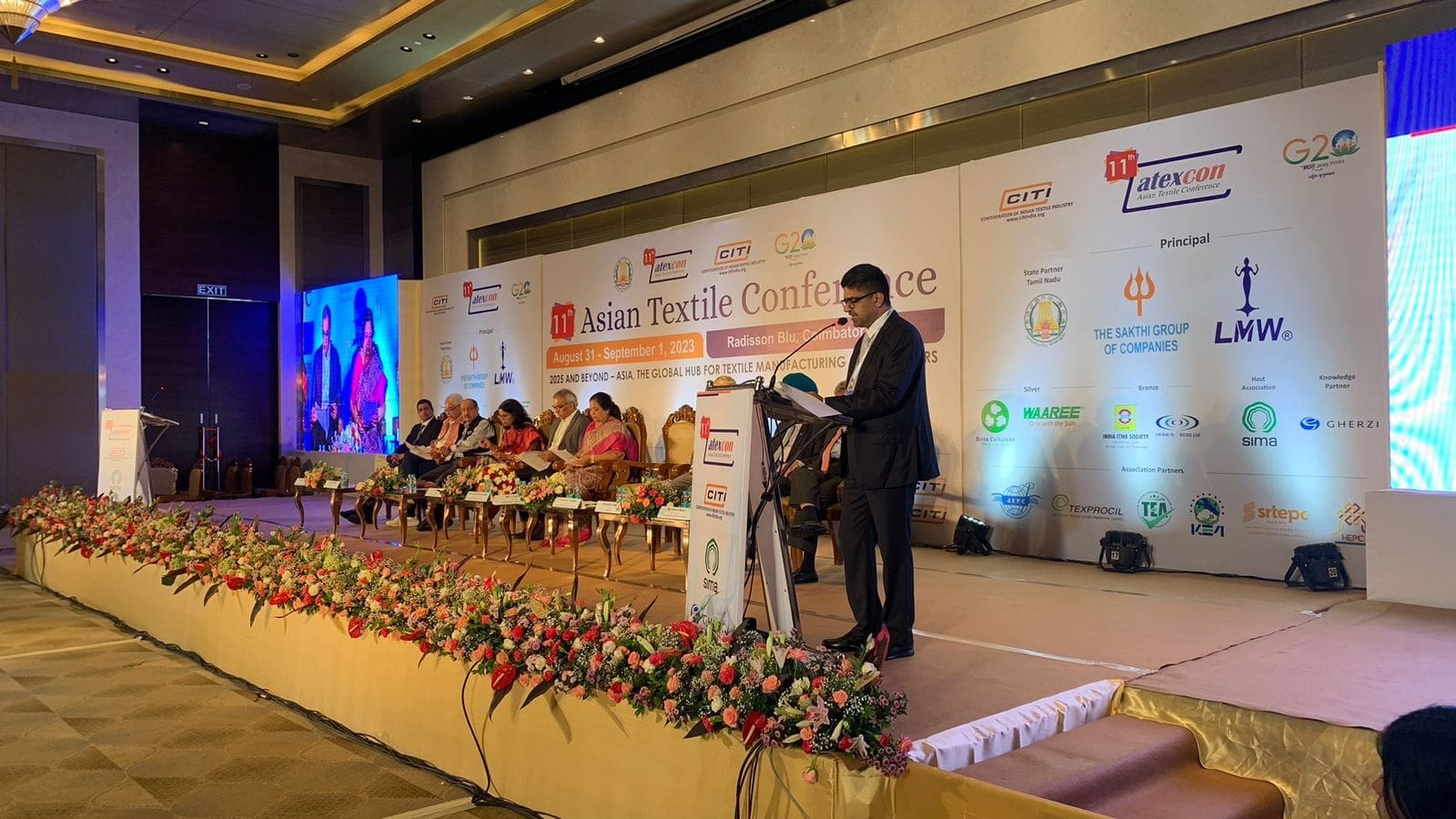
Convergence and Cooperation
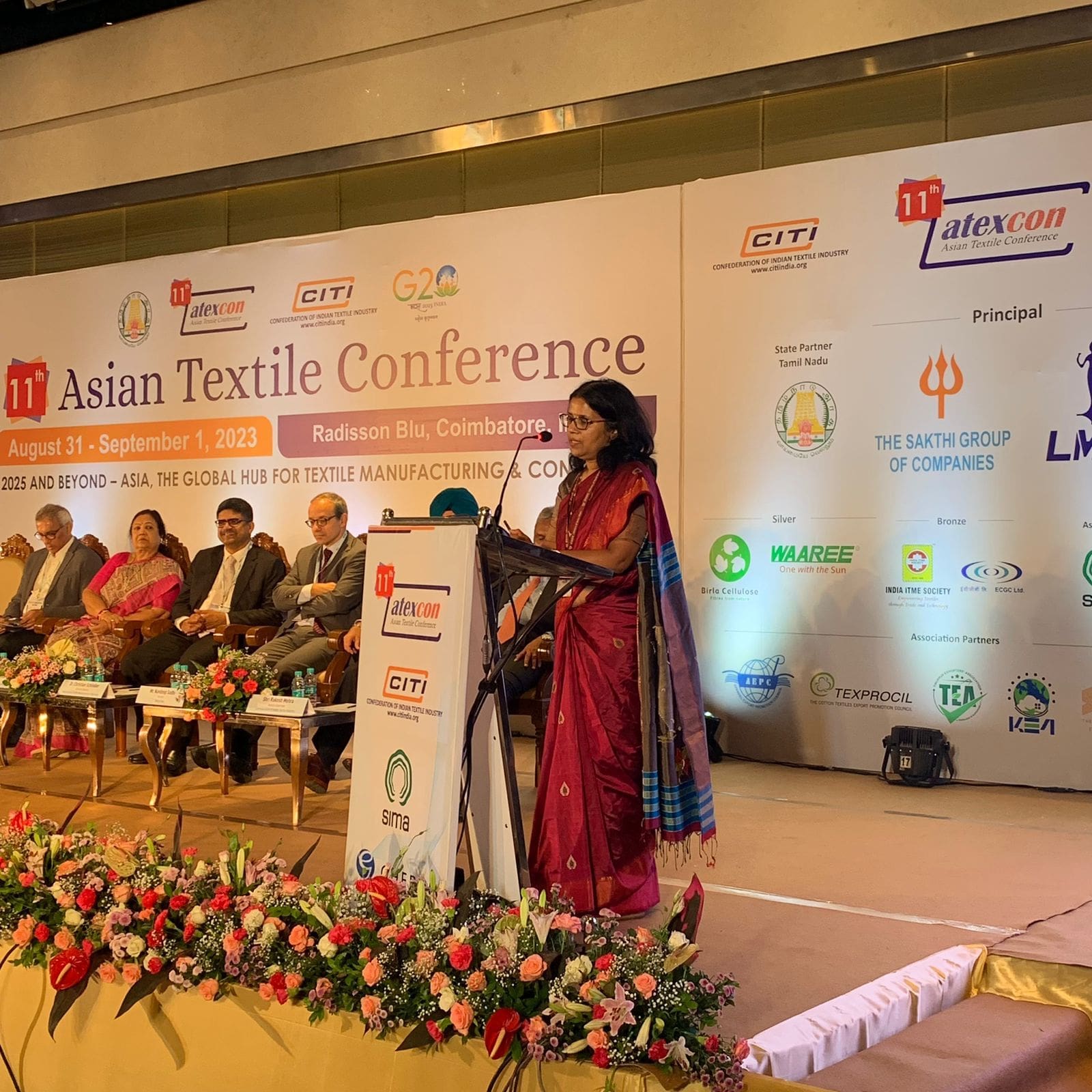
Ms. Prajakta Verma, Joint Secretary, Ministry of Textile opined Convergence and cooperation enable significant progress. Convergence aids in correcting errors and responding to criticism. To address the issues and challenges, the textile sector needs both internal and external collaboration. The overall emissions produced by the aviation and maritime sectors are virtually comparable to those of the textile sector alone. The textile sector needs workers with green skills in order to adopt sustainability and circularity, minimize emissions, and solve this issue. Our greatest strength and the source of 90% of our production is the MSME.
Sustainability
Navdeep Sodhi, Partner, Gherzi Textil Corporation, Switzerland opined:
– 60% of the world’s cotton and 80% of man-made fibers are produced in Asia-specific region.
Viscose is one of the fastest-growing fibers.
2025 and beyond:
Climate change is the pivot of policy making as sustainability and traceability are the core values being expected by buyers and importers.
Policy imperatives:
- Technology upgradation is paving the way for boosting productivity and efficiency.
- Cluster development – India is built on clusters, which is the backbone of our industry. Public investments are to be diverted to the anonymous companies that contribute 90% of the total industries in India, and the remaining 10% of companies are registered and listed.
- Scale is the next suggestion, which focuses on improving the capacity of production.
- Policy distortion – policies being built should be focused on unlocking the potential of Indian manufacturers and providing unhindered access to raw materials.

